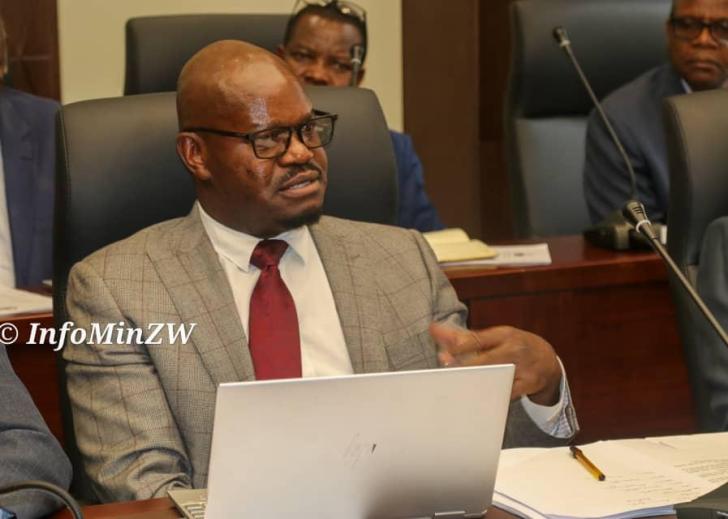News / National
Government's ZWL$1 billion debt cripples Zimpapers operations
09 Jul 2024 at 05:21hrs |
0 Views

The country's largest multimedia group, Zimpapers Limited is owed in excess of ZWL$1 billion by government departments and ministries, parliament has been told, a situation that has crippled its operations, which were already affected by foreign currency shortages.
Appearing before the Parliamentary Portfolio Committee on Information Publicity and Broadcasting, Zimpapers board member George Chisoko appealed to the legislators to put pressure on government to clear its debt.
"The biggest challenge is that government owes money to Zimpapers; so our request to you is for you to engage government so that they pay what they owe to Zimpapers," he said.
Also appearing before the same committee, Nick Mangwana, the secretary for the Ministry of Information Publicity and Broadcasting Services, confirmed that Zimpapers was owed ZWL$1 billion by government before the country switched from ZWL to the ZiG currency.
Chisoko said Zimpapers was also hit hard by foreign currency shortages, a situation that saw the media empire turn to the Reserve Bank of Zimbabwe for assistance.
"Part of the challenges we have been facing as a board is the availability of foreign currency," Chisoko said.
"We have given the executive a task to come up with ways of how they intend to raise the money. Two weeks ago, we had a meeting with the new RBZ governor, Dr John Mushayavanhu on how they can assist us in raising the foreign currency we require."
Committee chairperson and Marondera Central MP Caston Matewu however said the impression the legislators got when they toured Zimpapers was that the company was in sound financial standing.
"We were impressed by what we saw at Zimpapers during our tour of the premises. They told us they do pay dividends and that they were not in the red," he said.
Meanwhile, Mangwana said State owned broadcaster, Zimbabwe Broadcasting Corporation (ZBC) had improved radio and television licence fee collection levels, up from 2 percent from TV and radio owners in 2018 to between 20 and 22 percent.
"In 2018, the rate of compliance was 2 percent and after various initiatives by the Corporation, I am advised that its now between 20-22 percent.
"So, there is scope for them to improve the collection rate and be self-sufficient from licence fees alone," he said.
Appearing before the Parliamentary Portfolio Committee on Information Publicity and Broadcasting, Zimpapers board member George Chisoko appealed to the legislators to put pressure on government to clear its debt.
"The biggest challenge is that government owes money to Zimpapers; so our request to you is for you to engage government so that they pay what they owe to Zimpapers," he said.
Also appearing before the same committee, Nick Mangwana, the secretary for the Ministry of Information Publicity and Broadcasting Services, confirmed that Zimpapers was owed ZWL$1 billion by government before the country switched from ZWL to the ZiG currency.
Chisoko said Zimpapers was also hit hard by foreign currency shortages, a situation that saw the media empire turn to the Reserve Bank of Zimbabwe for assistance.
"Part of the challenges we have been facing as a board is the availability of foreign currency," Chisoko said.
"We have given the executive a task to come up with ways of how they intend to raise the money. Two weeks ago, we had a meeting with the new RBZ governor, Dr John Mushayavanhu on how they can assist us in raising the foreign currency we require."
Committee chairperson and Marondera Central MP Caston Matewu however said the impression the legislators got when they toured Zimpapers was that the company was in sound financial standing.
"We were impressed by what we saw at Zimpapers during our tour of the premises. They told us they do pay dividends and that they were not in the red," he said.
Meanwhile, Mangwana said State owned broadcaster, Zimbabwe Broadcasting Corporation (ZBC) had improved radio and television licence fee collection levels, up from 2 percent from TV and radio owners in 2018 to between 20 and 22 percent.
"In 2018, the rate of compliance was 2 percent and after various initiatives by the Corporation, I am advised that its now between 20-22 percent.
"So, there is scope for them to improve the collection rate and be self-sufficient from licence fees alone," he said.
Source - zimlive
Join the discussion
Loading comments…
































